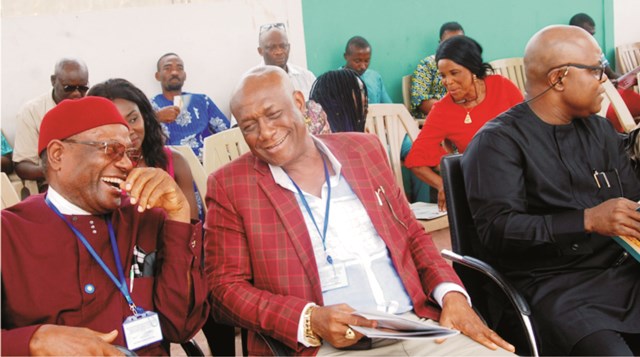Business
FG Mulls Solar-Powered Tricycles In 2019

The federal hovernment has announced plans to introduce solar-powered tricycles and motorcycles into the Nigerian transport system in 2019.
The Minister of Transportation, Mr Rotimi Amaechi disclosed this at the swearing-in ceremony of newly elected executives of Amalgamated Commercial Tricycle & Motorcycle Owners, Repairs and Riders Association of Nigeria (ACOMORAN) in Abuja.
The minister, who was represented by Director, Road Transport and Mass Transit Administration of the ministry, Dr Anthonia Ekpa said the initiative would solve the fuel challenges faced by motorcycles and tricycles riders.
“What we have done is to ensure that we introduce into the Nigeria environment, solar-powered tricycles, we are going to introduce into the sector tricycles that will not need to use fuel and also electric tricycles.
“I want to use this opportunity to also say that we have put it in the 2018 budget to be implemented in 2019 because in the 2018 budget we have what we called green transportation, which under it we have the solar-powered tricycles.
“We also have in the 2018 budget what we called amphibious vehicles, which is going to be in form of a tricycles which can be used on water and on land for those of you in the riverine areas, we hope to purchase that in 2019.”
He however, said that road transport remains the most critical and accessible to all Nigerians, urging the new ACOMORAN president to ensure that his members obey all traffic laws.
The Chairman, Senate Committee on Land Transport, Sen. Gbenga Ashafa congratulated the new president, urging him to ensure that his members were law abiding.
He said that the association was playing a vital role of providing affordable transportation in the country, adding that members must work towards reducing carnage on the road.
In his speech, the new national President, Mr Samsudeen Apelogun said the association would partner with the Ministry of Transportation and security agencies to succeed.
He said that his administration would concentrate on four key agenda of enhancing members welfare, total rebranding, infrastructural development and partnership with government and security agencies.
Apelogun said that the agenda would be vigorously implemented during his five years tenure.
Business
Nigeria’s ETF correction deepens as STANBICETF30, VETGRIF30 see 50% decline in a week

Business
BOI Introduces Business Clinic

Business
Dangote signs $400 mln equipment deal with China’s XCMG to speed up refinery expansion

-
Maritime1 day ago
Customs Declares War Against Narcotics Baron At Idiroko Border
-
Maritime1 day ago
Nigeria To Pilot Regional Fishing Vessels Register In Gulf Of Guinea —Oyetola
-

 Sports1 day ago
Sports1 day agoGombe-Gara Rejects Chelle $130,000 monthly salary
-
Maritime1 day ago
NIMASA,NAF Boost Unmanned Aerial Surveillance For Maritime Security
-
Maritime1 day ago
NIWA Collaborates ICPC TO Strengthen Integrity, Revenue
-

 Sports1 day ago
Sports1 day agoTEAM RIVERS SET TO WIN 4×400 ” MORROW” …Wins Triple jump Silver
-

 Sports1 day ago
Sports1 day agoNSC eyes international hosting rights
-

 Sports1 day ago
Sports1 day agoNPFL Drops To 91st In Global League Rankings

